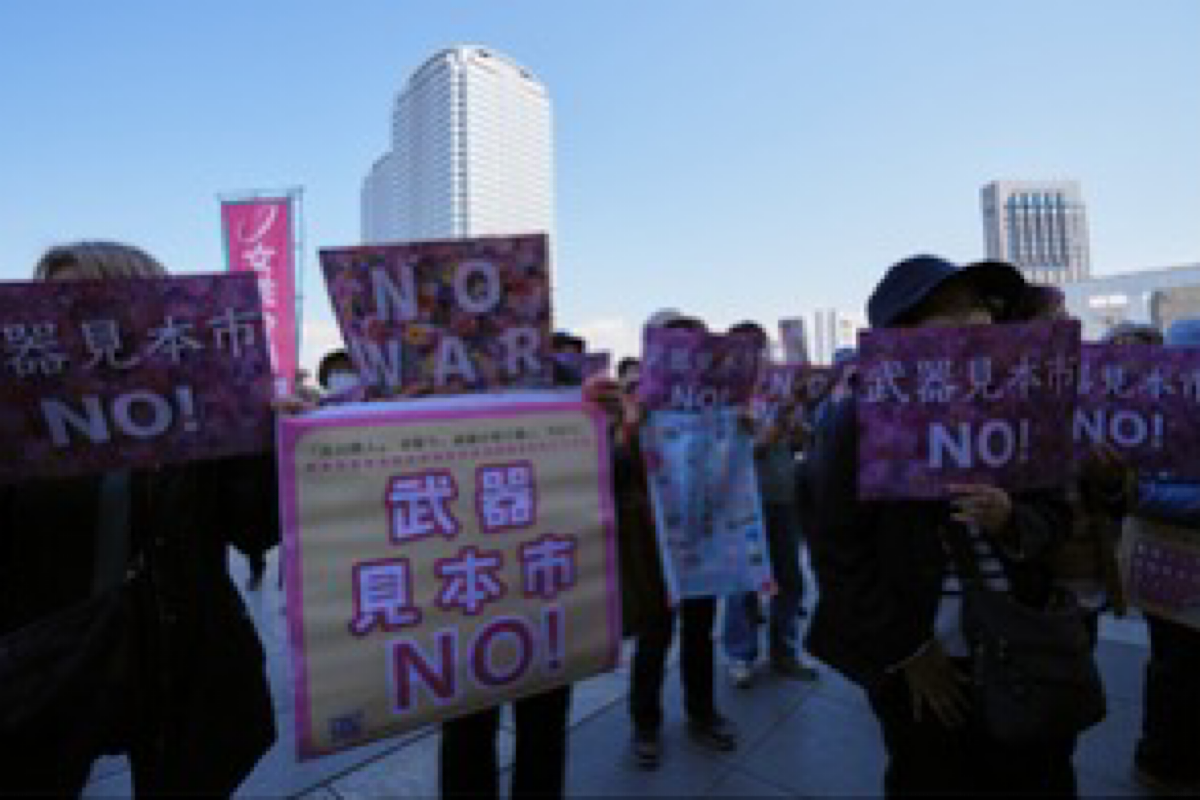Many Japanese protesters, amid heavy rainfall, gathered on Tuesday in front of the Prime Minister’s residence to rally against the government’s eased defence equipment transfer rules and further relaxation of arms export control.
Seen as a significant defence policy shift and another step contrary to the country’s pacifist constitution, the Japanese government decided at a cabinet meeting on Tuesday to lift the ban on exporting the next-generation fighter jets set to be jointly developed with Britain and Italy to third countries, Xinhua news agency reported.
On Tuesday, the updated guidelines of the “three principles on transfer of defence equipment and technology,” which would enable the fighter jet shipments, was approved by the Cabinet led by Japanese Prime Minister Fumio Kishida after Japan’s ruling coalition, the Liberal Democratic Party and the Komeito Party, on March 15 agreed on the revised export rules.
Chanting slogans such as “No Weapon Exports,” “Strongly Oppose Becoming a Warring Nation” and “Listen to People’s Voice,” local protesters voiced their concerns against Japan’s increasing involvement in the global arms trade, accusing the government of disregarding constitutional principles and the will of the people.
Among the protesters stood Mizuho Fukushima, head of the Social Democratic Party of Japan. She criticised that the Constitution of Japan, the Article 9 of which prohibits the export of weapons, has been gradually eroded.
“The decision to export the next-generation fighter jets overseas was made without any discussion in the parliament but solely among ruling parties. We are strongly against it,” she said, adding that the Japanese public do not want Japan to become “a merchant of death”.
Her point was echoed by Koji Sugihara, representative of a local citizen’s group named Network Against Japan Arms Trade.
“It’s as if the Article 9 has been completely disregarded, leaving only its remnants,” he told Xinhua news agency.
“This would be the first time that lethal combat aircraft are being exported overseas, and the decision was made clandestinely. What kind of democracy is this? It’s a farce!” Sugihara said with much anger.
The modification of the guidelines of the “three principles” is to pave the way for Japan to engage in comprehensive weapon exports, commented Atsushi Koketsu, emeritus professor at Yamaguchi University of Japan.
He also doubted the procedure of Tuesday’s revision is lawful, stressing the fact that the government forced the revision through a cabinet resolution without any public discussion raises serious concerns about the possibility of further amendment.
“While the government claims that exporting the next-gen fighter jets to third countries is ‘to protect the safety of the Japanese people,’ but such a move, by blatantly denying the pacifist constitution, would instead draw Japan into conflicts,” the scholar told Xinhua news agency.












